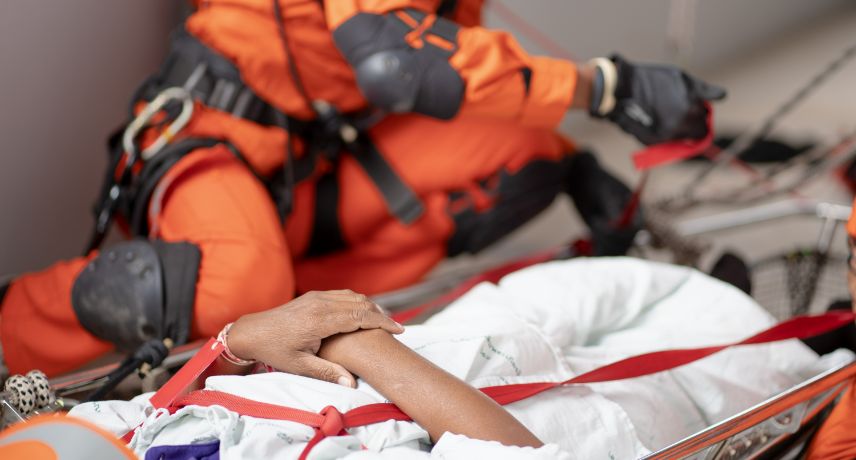29th May, 2024

Proper emergency medical services/care can mean the difference between life and death. Swift access to specialized care, a skilled medical team, and well-equipped facilities can significantly increase the chances of survival and recovery. To help you understand more about medical emergency services, we share with you some of the useful insights:
Emergency care refers to the crucial medical assistance given to individuals in the immediate aftermath of a severe illness or injury. This type of intervention is aimed at preserving life and often involves critical procedures such as Cardiopulmonary Resuscitation (CPR), defibrillation, and the administration of specific medications. The primary goal of emergency and trauma care is to provide immediate and essential medical support to stabilize the patient's condition and prevent further harm.
It is important to note that not every medical emergency requires hospitalisation. The first responders will check the patient thoroughly and take a call based on their evaluation. At any rate, medical emergency services must be contacted when an individual is facing life-threatening issues, such as strokes, serious accidental injuries and respiratory malfunctions.
Emergency and trauma care may include various life-saving measures such as:
In case of an emergency, call the hospital immediately. An ambulance will reach your location shortly. These vehicles must be prepared to handle every scenario while transporting a critical patient. A well-equipped ambulance should have the following: defibrillators, patient monitors, suction unit, oxygen supply, nebulizer, bandages and splints. Depending on the severity of the patient's condition, some ambulances may also be equipped with advanced life support systems.
Additionally, ambulance interiors must adhere to the strict hygiene guidelines. Seat belts and fire extinguishers are other items found inside a well-equipped ambulance. Since the roads are the only mode of transportation, such safety and medical equipment will ensure that a patient has the best chances of survival.
Finally, it's important that patients suffering from an emergency reach the hospital within the golden hour. Golden hour is the hour following the onset of the emergency symptoms. Medical practitioners claim that seeking treatment for an emergency within this time ensures an altogether more favorable outcome. After the golden hour runs out, symptoms usually progress into more severe forms. This is why a properly fitted ambulance and quick transportation times are crucial in saving the life of a person suffering from an emergency.
It can be difficult to know where to admit the patient based on the symptoms. Fortunately, that decision is left to the medical staff and not to the patients or their family members. While transporting the patient, medical personnel will assess the symptoms and report the same to the hospital staff. Based on such evaluations, the doctors and nurses will admit the patient to the relevant department upon arrival.
At Peerless Hospital, our commitment lies in providing exceptional healthcare to all our patients, consistently and without compromise. Our emergency department exemplifies this vision through its multifaceted and dynamic approach.
With 25 fully equipped beds and a team of well-trained Emergency Physicians, we ensure that our patients receive the highest standard of care. We have a dedicated trauma team available, complete with an operating theatre within the emergency department. Also, we have the invaluable support of our orthopaedic department and the National Neurosciences Centre, which comprises expert neurosurgical and neurology consultants.
As one of the busiest emergency departments in Kolkata, we set the bar high for patient care and are well-prepared to meet the demands of our emergency room. Our department is staffed at all times by emergency physicians who have received specialized training in the field of emergency medicine. Notably, we take pride in being one of the few departments in Kolkata to offer 24-hour consultant coverage in our emergency department.
In case of any Emergencies call Ambulance Service on 9038224000 or 9038225000.